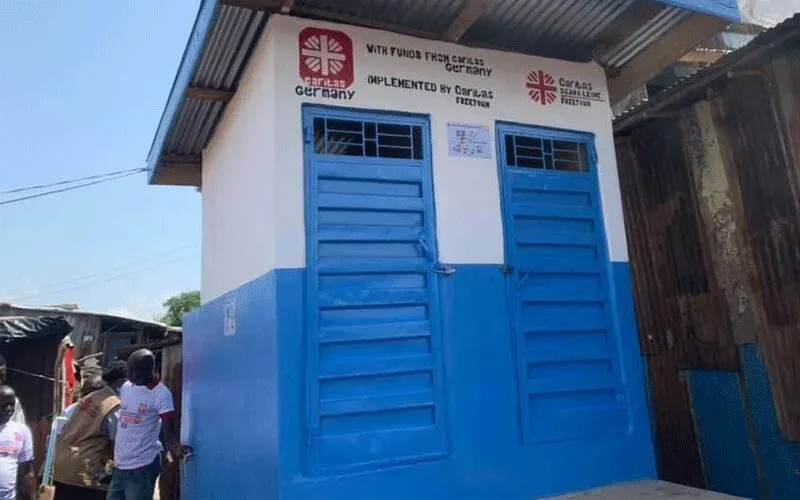Freetown, 07 November, 2022 / 8:56 pm (ACI Africa).
Culvert slum’s version of hanging toilets are little wooden, plastic and stone structures fitted with pipes that pour into the sewage that runs below them.
Isata Samura who has been living in the slum outside Sierra Leone’s Capital city, Freetown, for over two decades, used the hanging toilets for years. She tells ACI Africa that there was no dignity in lining up to use the toilets, especially in broad daylight. “We had no alternative. They were all we had,” she says.
“You see that one over there partly covered with plastic bags? A man just entered it,” Isata Koroma, a mother of three who was born and raised in Culvert, chips in as she leads the way across the sewage, balancing herself on the stones placed in the dirty sewage to prevent those crossing from falling into the filthy water.
She explains that to use the hanging toilets, especially those without a pipe, one has to position themselves properly, with their back turned towards the sewage so that their waste falls in the dirty water below and is swept away. This way, the toilets not only pose health risks to users, but also offer no privacy to the one using them.
Before Caritas Freetown intervened and started constructing modern toilets around the settlement, women would use what the residents referred to as ‘black buckets’ during the day, keep the bucket contents in their houses, and only empty them into the sewage at night, under the cover of darkness.








